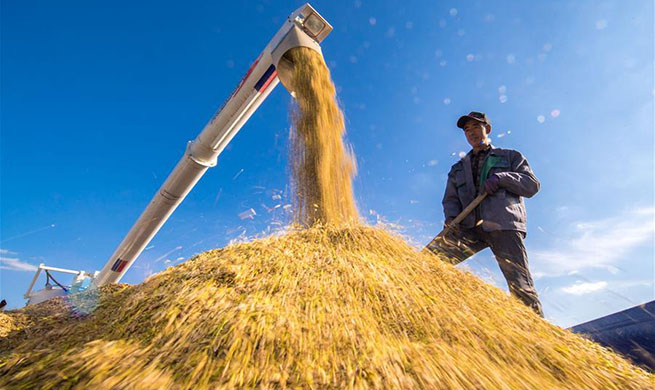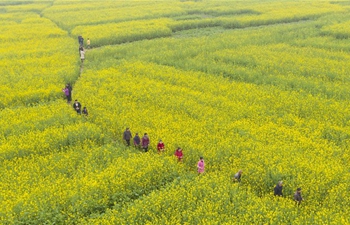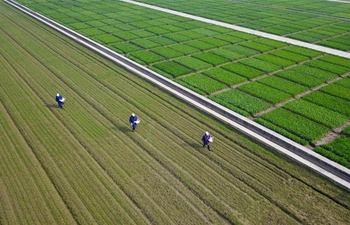BERLIN, Feb. 28 (Xinhua) -- Following the unusually dry summer of 2018, harvests in Germany of nearly all types of vegetables have declined by 14 percent in yields and decreased to a total of 3.3 million tons, the Federal Statistical Office (Destatis) announced on Thursday.
The harvest of legumes such as lentils and beans in particular fell sharply by 25 percent to a total of 65,400 tons. Harvests of all types of cabbage only yielded 730,400 tons, which was a significant decline of 21 percent in an annual comparison.
The 2018 drought also negatively affected carrots, which usually make up for the largest share of vegetables harvested in Germany. With a decline of 15 percent, the total quantity of harvested carrots declined to 625,400 tons, although the area under cultivation had increased.
According to the German statistical office, the area on which organically farmed vegetables were cultivated grew slightly to about 11 percent of the total farmland in Germany. However, farmers in organic cultivation also recorded a 14 percent decline in total yields.
As one of the consequences of the 2018 drought, consumers in Germany had to pay significantly more for vegetables. The price level of vegetables grew by 6.3 percent which is more than three times as high as the 2018 inflation level in Germany, Destatis reported last week.
With a nationwide average temperature of 19.3 degrees Celsius, the year 2018 was the second hottest year since weather records started in 1881, the Germany's National Meteorological Service (DWD) reported, adding that only the summer of 1911 would have surpassed the record temperatures of the summer of 2018.
While observing Germany from the International Space Station (ISS) in early August 2018, astronaut Alexander Gerst commented on the "shocking sight" of middle Europe and Germany where "everything is dried up and brown where it should be green."
Following the dry summer, the German Farmers' Association (DBV) demanded 1 billion euros (1.14 billion U.S. dollars) in governmental aids to make up for lost harvests. Responding to the calls, the German government provided 340 million euros in emergency aid to support the most affected farmers.













